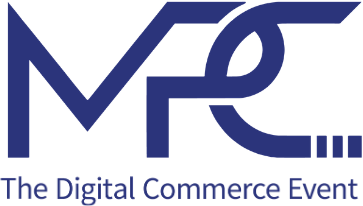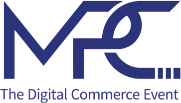by Sharon Rosa-Bohrer
Blockchain has the potential to revolutionize how the world, and business, work. From multi-step transactions like buying a house, requesting medical records to tracking assets, like a house, land, car or intellectual property, blockchain makes these processes economical and efficient. Blockchain is a shared, distributed, immutable ledger that offers all parties in a business network a secure and synchronized record of transactions and tracking of assets, from beginning to end. With blockchain, you can track or trade anything of value, so its potential application is vast.
The Business Challenge
The number of global transactions will continue to multiply due to the explosive growth of fintech, e-commerce, online banking, and in-app purchases, in addition to the mobility of people around the world. Managing these transactions is a challenge. Many business transactions are inefficient, expensive and vulnerable to fraud. Blockchain to the rescue! The blockchain network is economical and efficient because it eliminates duplication of effort and reduces the need for middlemen. It’s also less vulnerable because it uses consensus models among all participants to validate information. Blockchain transactions are secure, authenticated, and verifiable.
Despite our increasingly global society, cross-border payments and transfers in some parts of the world are an area that is still trapped in a process that takes multiple intermediaries and days to finalize. The application of blockchain technology changes this.
Universal Payment Network with Blockchain
Blockchain represents the next major shift in payments.
Consumers are adopting fintech fast! One out of three people across 20 major economies used two fintech services in the last 6 months, and this trend is expected to continue.
The future of blockchain technology extends beyond tracking transactions to the development of a universal payments system. Blockchain leaders predict that this global payment system would facilitate everyday financial transactions in a wide range of fiat currencies, like dollars and euros, not just cryptocurrencies.
The current process of initiating and settling an international payment involves multiple steps, multiple currencies, and often many intermediaries. This process can take days to finalize with little transparency of the transaction status and is often error-prone and subject to high fees. This is especially true in emerging economies where the banking system is still developing.
In October 2017, IBM introduced a new blockchain banking solution that helps financial institutions address the processes of universal cross-border payments, designed to reduce the settlement time and lower the cost of completing global payments for businesses and consumers. Using IBM Blockchain, and in collaboration with technology partners KlickEx Group and the Stellar Foundation, IBM designed a universal, cross-border blockchain payments solution to improve the speed in which banks both clear and settle payment transactions. Completed on a single network in near real time, it reduces the time it takes for a payment to clear from days to seconds.
By introducing this single, transparent record of transaction, the network provides a low-cost, yet highly efficient method for payments to efficiently transfer across borders. This is the first step in building a new, global financial services in conjunction with banks and central banks around the world. By creating new, real-time global payment solutions, “large and small businesses alike will finally reach a higher level of efficiency and affordability in cross-border transactions” (Business Insider).
Blockchain Offers Security
Blockchain also offers security against tampering, fraud, and cybercrime. If a network is permissioned, it enables the creation of a members-only network with proof that members are who they say they are and that goods or assets traded are exactly as represented. With a blockchain ledger, no one person or organization holds ownership of the system. No one person can add or alter the blockchain without being permanently recorded which makes it highly secure. Everyone involved in the process can see all the records and no transactions can be added without consensus by all participants. Blockchain eliminates the risk of fraud and error.
Since every transaction builds on every other transaction, any corruption is readily apparent and everyone is made aware of it. This self-regulating among blockchain network participants can reduce the dependence on legal or government safeguards and sanctions to monitor and control the flow of business transactions.
Learn More about the Benefits of Blockchain
Blockchain brings both time and cost savings to business transactions of tangible and intangible assets across a global network, with built-in fraud prevention. The promise of a future universal payment system makes blockchain’s future bright.
To learn more about IBM Blockchain, the potential of a universal payments solution, and how blockchain can benefit your business, check out IBM’s Market Insights & Strategy Lead, Blockchain Jo Lang at this year’s Mobile Payments Conference 2018. Register now!








